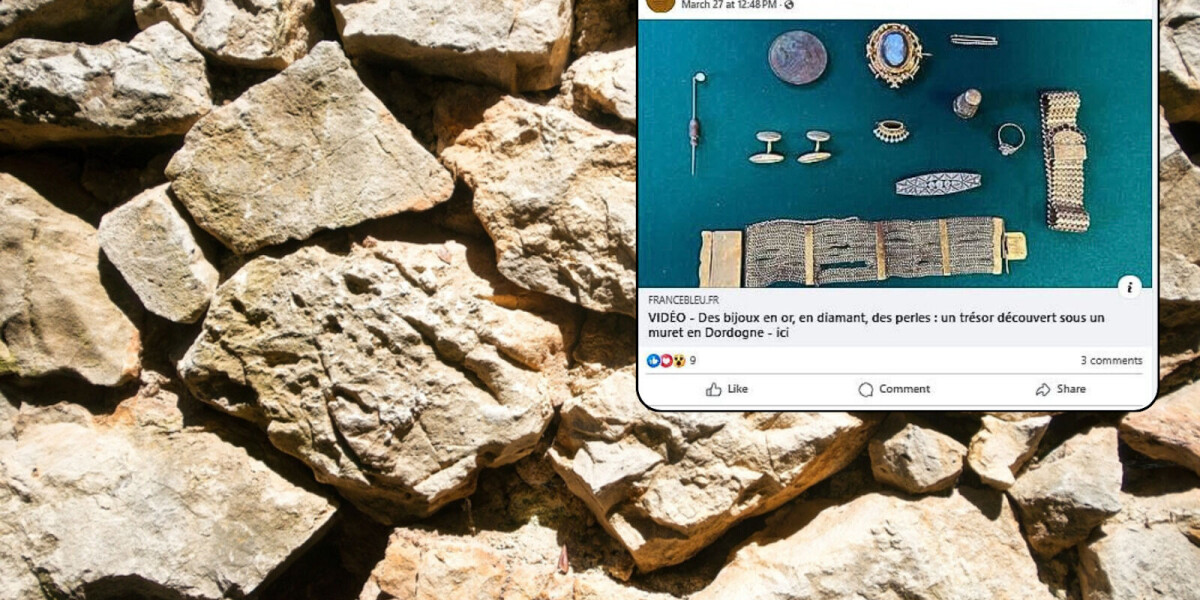
Mystery of jewels found buried under communal wall in dordogne
- Select a language for the TTS:
- UK English Female
- UK English Male
- US English Female
- US English Male
- Australian Female
- Australian Male
- Language selected: (auto detect) - EN
Play all audios:

THE GOLD RINGS, PEARL BROOCHES AND DIAMOND ENCRUSTED BRACELETS WERE DISCOVERED BY A LOCAL ASSOCIATION A mysterious trove of gold rings, pearl brooches and jewel-encrusted bracelets and hair
clips has been discovered buried under a dry stone wall belonging to the commune in Dordogne. The president of the Périgord Pierre Sèche (PPS) association, which runs dry stone walling
induction courses, was demolishing an old wall in the commune of Saint-André-d’Allas, near Sarlat-la-Canéda, on March 1, when the treasure caught his eye. “When you rebuild walls like this,
you first dig right down to the foundations," said Jean-Marc Audit. “I was doing this with a mechanical digger - but when I got out to have a look, I made the discovery.” The treasure,
which was tangled up in old tree roots, appeared to have lain under the wall for some time. It is not known how, why or when it came to be there. “The treasure was on communal land, so the
law stipulates that it belongs 50/50 to the finder and the landowner," said Mr Audit. Nonetheless, both he and the commune have agreed not to sell it. The mairie of Saint-André-d’Allas,
which has declared the find to the prefecture and the gendarmerie, says it is keen to discover the history of the jewels. “We are appealing to local residents to tell us any stories they
may have heard about them,” it said. However, Mr Audit is concerned that the discovery could ultimately work against him and his association if treasure hunters descend on the commune’s
100km of dry stone walls. “We don't want people with shovels making holes all around the walls.” Notwithstanding, he has not disclosed exactly where he made the find. WHAT ARE THE RULES
IN FRANCE ABOUT FINDING LOST ITEMS? MYSTERY OF THE BOX FILLED WITH JEWELS FOUND NEAR CHAMONIX If you find a stash of money or items when out in France, it should be declared to either the
gendarmerie or local police within 24 hours. The gendarmerie will check if the discovery is suspicious. If it is not, they will hand the case over to the local authorities, who will look for
the owner of the item or money. If you do not declare valuable items or money you find, you could face a €1,500 fine or one year in prison. After one year, if the owner has not been
identified, the items will be returned to you – however, you cannot sell them until another three years have passed. In this intermittent period, you are only the “usufructuary” of the money
and must give it or objects back if the owner comes forward. If the case closes without the original owner being found – or three years go by – those who discovered the ‘treasure’ are now
the rightful owners, states Article 716 of the Civil Code. In situations where the treasure is found on land belonging to someone else, it is split, with half given to the owner of the land.
